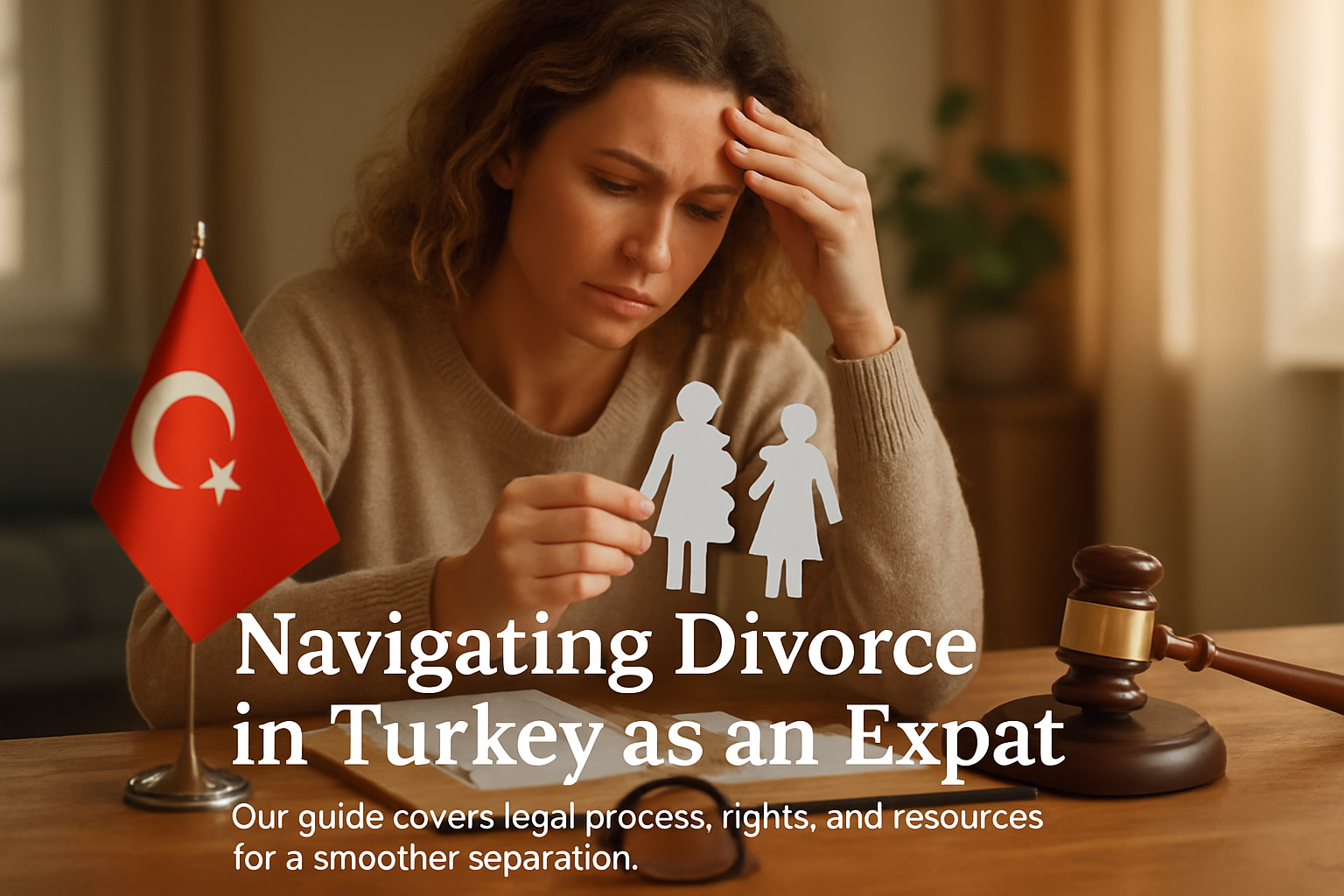Divorce Proceedings in Turkey: A Guide for Expats

Living as an expat in Turkey brings excitement, opportunity, and a few administrative challenges. Among the most daunting is navigating local legal systems, especially when it comes to personal matters like divorce. Every country handles divorce differently, and expats can find themselves overwhelmed by the differences in language, bureaucracy, and cultural expectations. Knowing how divorce proceedings work in Turkey provides clarity and helps ensure that your legal interests remain protected.
Understanding Divorce Laws in Turkey
Turkish family law falls under a civil law system, and its approach to divorce can be surprisingly straightforward compared to some nations. However, the system requires adherence to local customs, documentation, and courts that operate in Turkish. Eligible couples must be legally married in Turkey or have their foreign marriage recognized through proper channels. If you entered Turkey on a residence permit and later married, Turkish law usually governs your divorce if filed within the country.
Expats benefit from the expertise of local legal professionals as well as translators. Engaging both ensures you stay informed at every stage. Knowledge of the system helps you set realistic expectations and reduces the chances of delays or surprises.
- Turkish law recognizes both contested and uncontested divorces
- All hearings take place in Turkish courts
- Civil law processes dictate all paperwork and evidence
Types of Divorce Proceedings
Divorce in Turkey can be contested or uncontested. Uncontested divorce suits both parties when they agree on all issues, such as property division, child custody, and alimony. Contested divorce applies if spouses can’t reach agreement or when one party objects to the proceedings. Each process follows distinct requirements, so understanding which fits your situation saves time and stress.
- Uncontested divorce: Quicker, less stressful, needs mutual consent
- Contested divorce: Longer, may involve multiple hearings and appeals
- Foreigners must undergo the same process as Turkish nationals
For example, a British-German couple living in Istanbul may agree to separate amicably. Through legal counsel, they submit a single petition confirming their decisions. Their case is usually resolved at the first court appearance, saving them time and emotional strain. By contrast, if one spouse demands sole custody or disputes property, contested divorce procedures may require evidence, witness testimony, and multiple court sessions.
Key Requirements and Documentation
Turkish courts are rigorous about documentation. Proper file preparation lowers the risk of delays. All non-Turkish documents, such as foreign marriage certificates or prenuptial agreements, require notarized Turkish translations. Missing or incorrect paperwork sets cases back by weeks or months.
- Valid marriage certificate (with apostille if outside Turkey)
- Proof of residency or local address
- Passports or Turkish IDs
- Financial declarations for asset division
- Marriage contract, if applicable
- Child custody and support arrangements
Diligence with these requirements prevents unnecessary setbacks. For instance, an American expat living in Ankara realized that her divorce stalled because her marriage license lacked proper notarization. After securing the apostille and Turkish translation, the court accepted the documentation and scheduled her hearing.
Challenges Faced by Expats in Turkish Divorce Courts
Expats often find procedural differences and language barriers to be the biggest hurdles. Turkish courts conduct all proceedings in Turkish, so reliable interpretation services are crucial. Cultural expectations sometimes affect property division or custody outcomes, particularly when one spouse is Turkish and the other is not.
- Legal jargon lost in translation
- Cultural biases or unfamiliar procedures
- Lengthy bureaucratic timelines
- Cross-border enforcement issues for child custody or alimony
For example, a Canadian-Turkish couple with children must agree on custody arrangements. If the non-Turkish parent wishes to return home, exit permissions and international custody agreements may need special attention. Navigating these situations with clear communication and legal help avoids disputes and supports your children’s best interests.
Seeking Support: Practical Steps for Expats
Preparation ensures a smoother process. Research legal professionals familiar with expat divorce cases. Maintain organized records and create copies of essential documents. Use translator services for both written and spoken communication, as misunderstandings can stall proceedings.
- Consult local lawyers with expat case experience
- Request certified translation services for all documents
- Gather comprehensive financial and personal records in advance
- Explore local support groups for emotional well-being
- Keep open and respectful communication with your spouse
Getting professional guidance pays off in time, clarity, and peace of mind. Many expats in Turkey have found that timely legal advice turned overwhelming court battles into manageable transitions. By following these practical steps, you can minimize stress, safeguard your interests, and focus on building the next chapter of your life.
